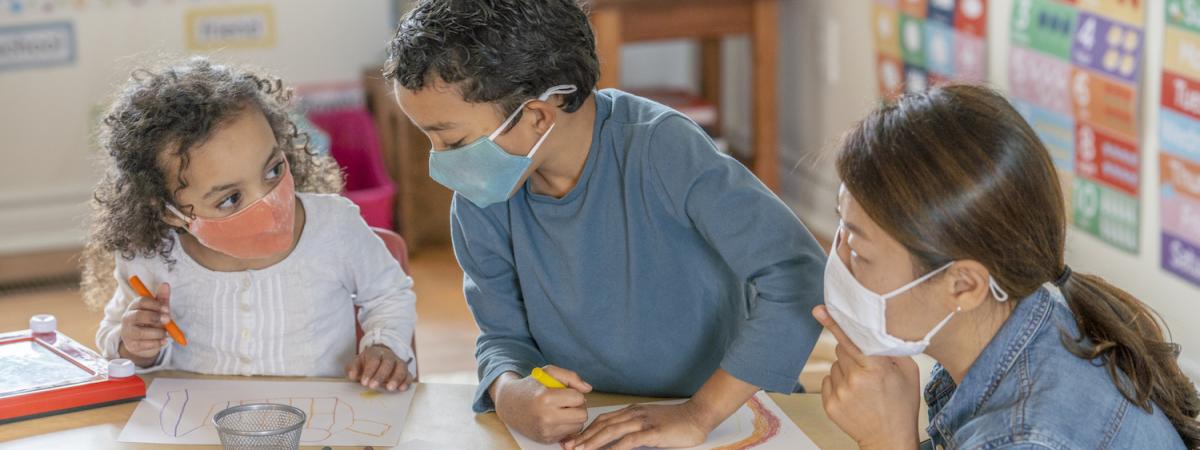In the Research Institute for Children’s Health at Case Western Reserve University School of Medicine, we focus on children's medical conditions in several areas. Get to know our mission, our background and the various approaches our researchers take.
Mission
The mission of the Research Institute for Children's Health is to implement strategies to develop safe, effective therapies for childhood disorders, and to do so as rapidly as possible, focusing on disorders with genetic involvement. The institute has developed this mission from the department's work in cystic fibrosis.
Background
The Research Institute for Children's Health applies state-of-the-art technology in the fields of genetics and pharmacology to rapidly develop therapies for genetic-based disorders.
The institute has developed its mission from the department's work in cystic fibrosis (CF). Our faculty members have long been leaders in the field, developing transformative therapies for CF as far back as the 1950s and 1960s, involved in identifying the gene that causes CF in the 1980s, and were the first to show that pharmacologic approaches could be used to treat the defect in the 1990s and have led clinical trials to test the newest generation of drugs for CF over the last decade.
Based on this established pipeline that incorporates bench scientists and clinical scientists, the institute will apply the knowledge gained in CF to other disorders. With current technology in genetics and pharmacology, the process should be much faster for many disorders.
Technology Speeds Therapeutic Discovery
When the CF gene was sought, much less than 1% of the human genome was mapped and understood. Now, thanks to genome sequencing efforts and the technology it has provided, nearly 100% of the genome is characterized. As a consequence, searches for disease-causing mutations are in many cases quick and relatively inexpensive, effectively moving the bottleneck in the pipeline from gene discovery to developing disease treatments.
Other advances in technology relevant to the institute include genome engineering and high-throughput screening. New methods in genome engineering allow us to develop precision models of genetic diseases, whether they be cells grown in culture or animal models. These new techniques allow us to re-create the genetic mutation that causes disease in those cells or animals in a matter of months, providing a much better understanding of the disease and platforms for evaluating potential therapies.
The field of pharmacology is being revolutionized by high-throughput screening, as robotics and miniaturization allow screening hundreds of thousands of compounds for therapeutic drug properties, using the disease model cells developed through genome engineering.
Approach
A key principle of the institute is a paradigm shift in the scientific process. The traditional route, which is to learn as much as one can about a disease process and then predict what drugs might modulate the process, is inherently slow. Scientists never feel like they know enough and thus this phase is never complete. The philosophy of the institute is that high-throughput screening allows us to embark on therapeutic development almost immediately, looking for drugs that might reverse, slow or halt a disease process, long before we fully understand how the disease works.
While mechanistic studies are very important and will still be carried out, they will be done in parallel with drug development rather than preceding it.
Diverse Perspectives
The concept of the Research Institute for Children's Health was inspired by conversations between our scientists and non-scientists from the community, evaluating the needs in medicine and what technology can allow us to do to meet those needs. The technology of today will allow us to do so much more, and tomorrow's technology even more, but they will require funding, and thus a major goal of the institute is to generate the funds needed to increase both the rate at which discoveries are made and the pace at which they are converted to therapies.
Focus Areas
The institute focuses on children's medical conditions in several areas: pulmonary disorders, metabolic or endocrine disorders, neurological disorders, renal disorders and intellectual disabilities with a genetic etiology.


